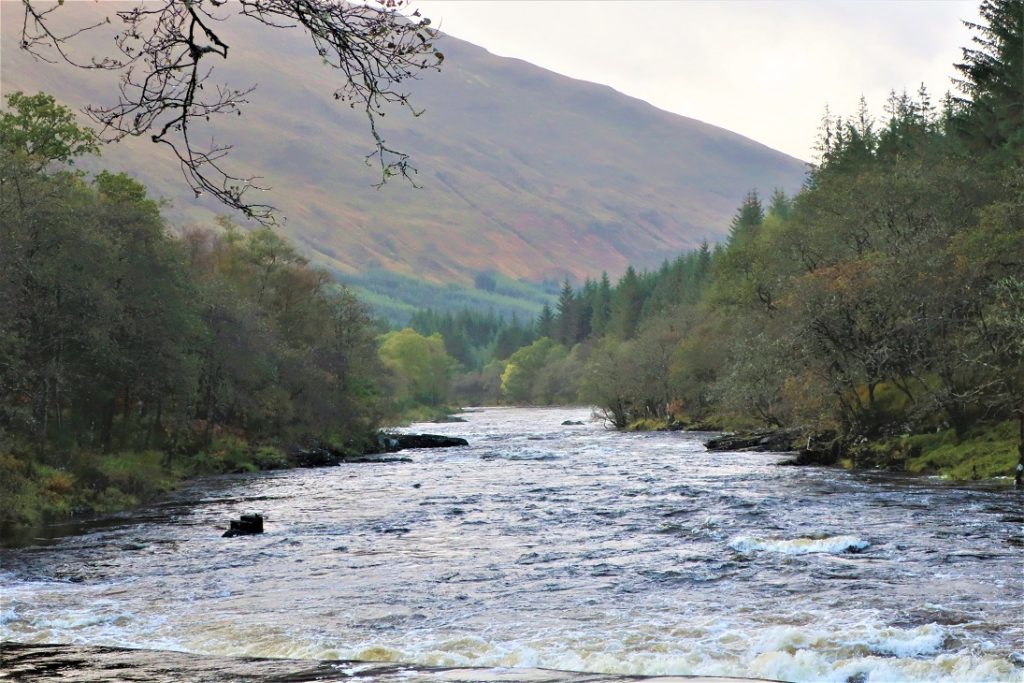
I’m visiting my home county of Argyll on the west coast this week and enjoying familiar autumn scenes. My first stop off is Glen Orchy Farm in the middle of my favourite glen. After heavy rain, the river’s in full spate.
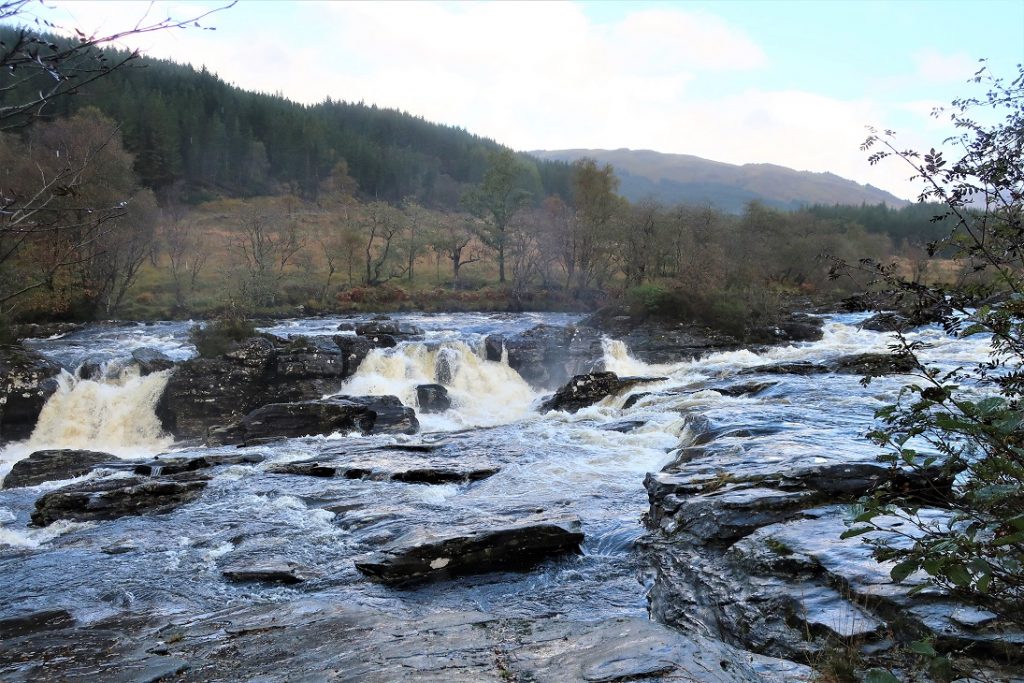
I’ve come to talk bees with Tristan McLennan and help him set up his new 12-frame manual Lyson radial extractor and process the first major honey harvest. It’s a family affair with Fiona and the wee boys helping. Our white coats and hats are in the wash but we manage to keep clean and the honey looks perfect when we finish. I’ve never used a radial extractor before so it was interesting to see how it works compared with my 3-frame manual tangential which takes so much longer to operate with having to change the frame position 3 times before the comb empties. The radial extractor possibly needs to be spun a bit faster than the tangential but it is lovely not to have to change the frame positions and a bonus to have 12 frames extracted at once. Given that there was probably a bit of heather in the comb, besides rosebay willowherb, the frames were light and almost empty. Tristan will store frames in a large airtight box and return to the colonies in spring.
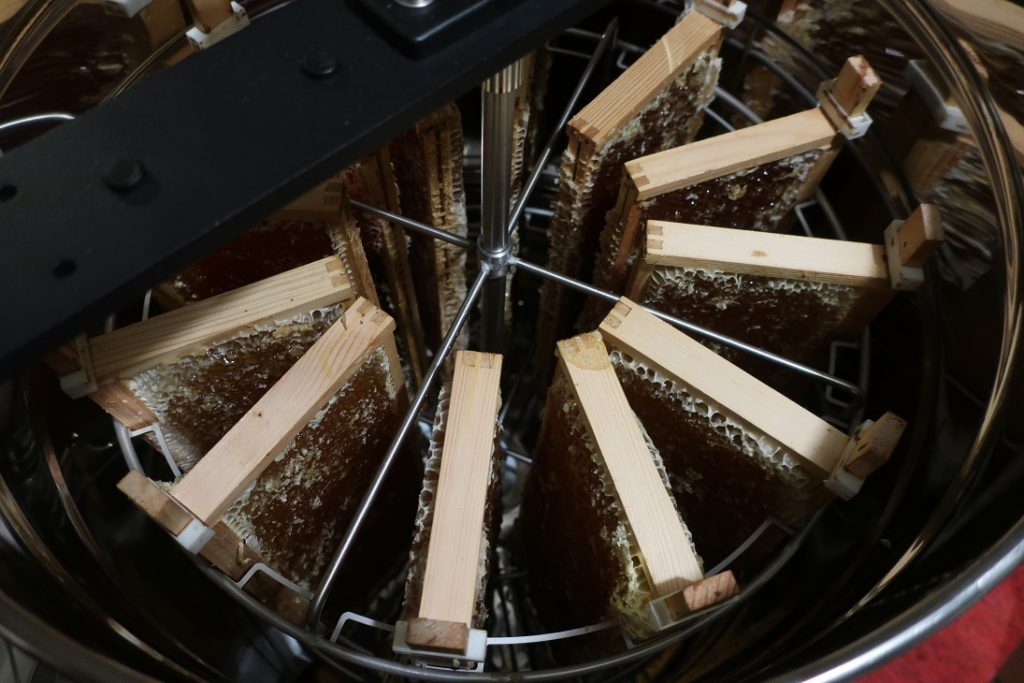
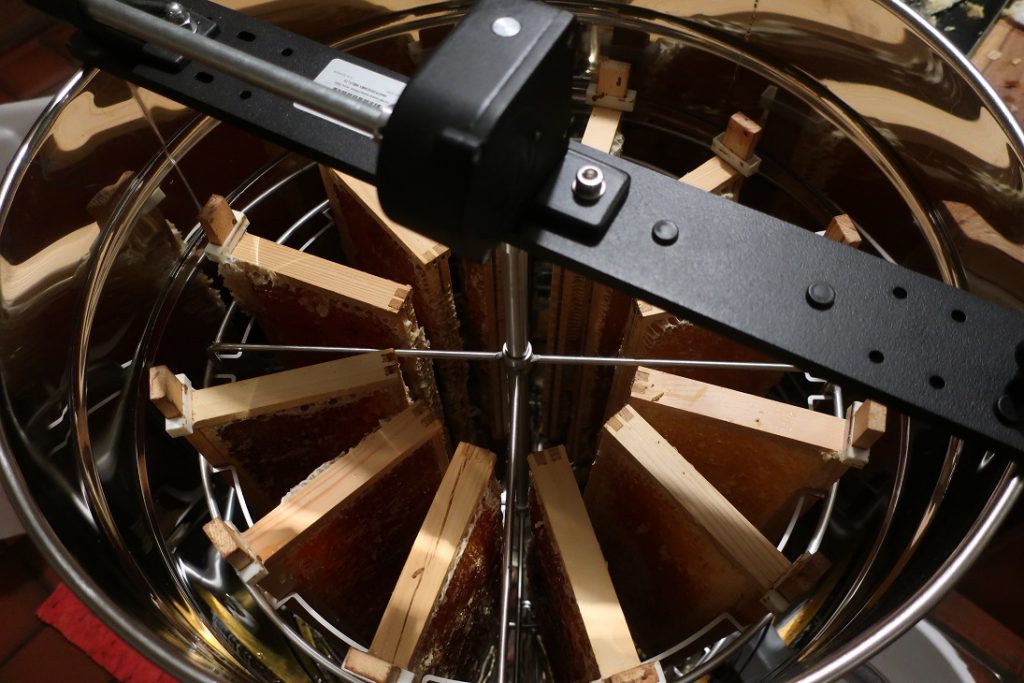
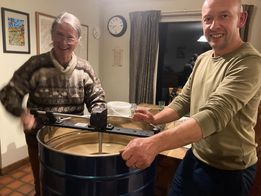
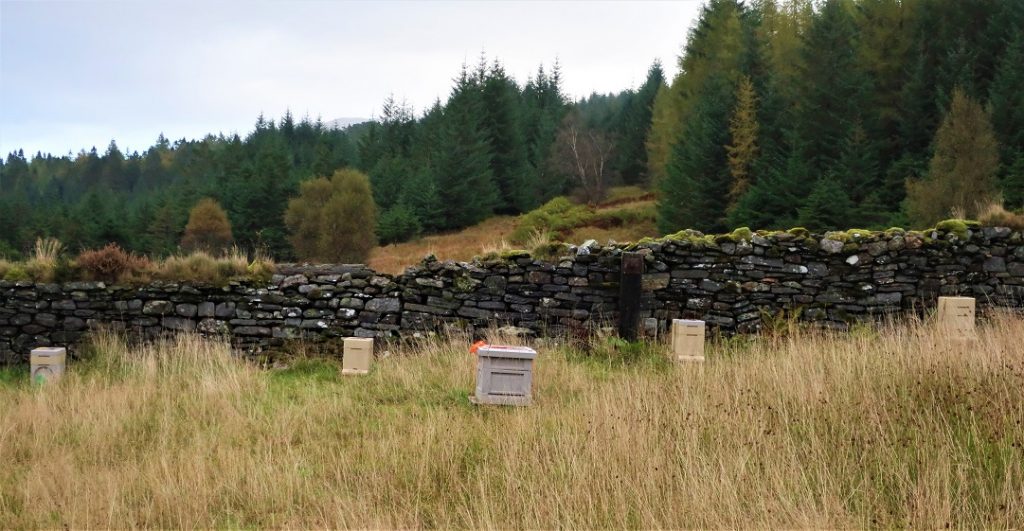
Tristan is lucky not to have varroa in Glen Orchy, but the forage is marginal and the weather really challenging for beekeeping due to heavy rainfall. Despite all, Tristan is successful and adds beekeeping to his list of skills that enable his family to make a living on the farm here. Since I was last here, Tristan and Fiona have established 2 comfortable luxury cabins which are very popular. They have great views to enjoy from the hot tubs outside each cabin. They have a wee farm shop selling home grown produce including, eggs, pork, beef, and vegetables from the poly tunnel. Honey will soon be on the shelves too. https://www.glenorchyfarm.co.uk/
Harnessing the rain for electricity.
I’m really impressed by the McLennan’s wee hydro electric scheme that turns the water tumbling down the hillside into electricity to power the cabins and house, and send surplus to the national grid.
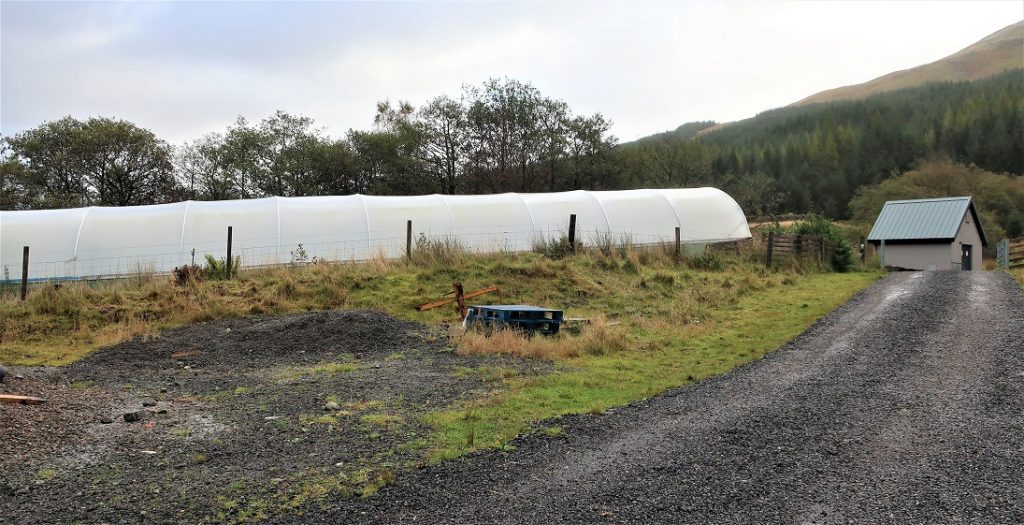
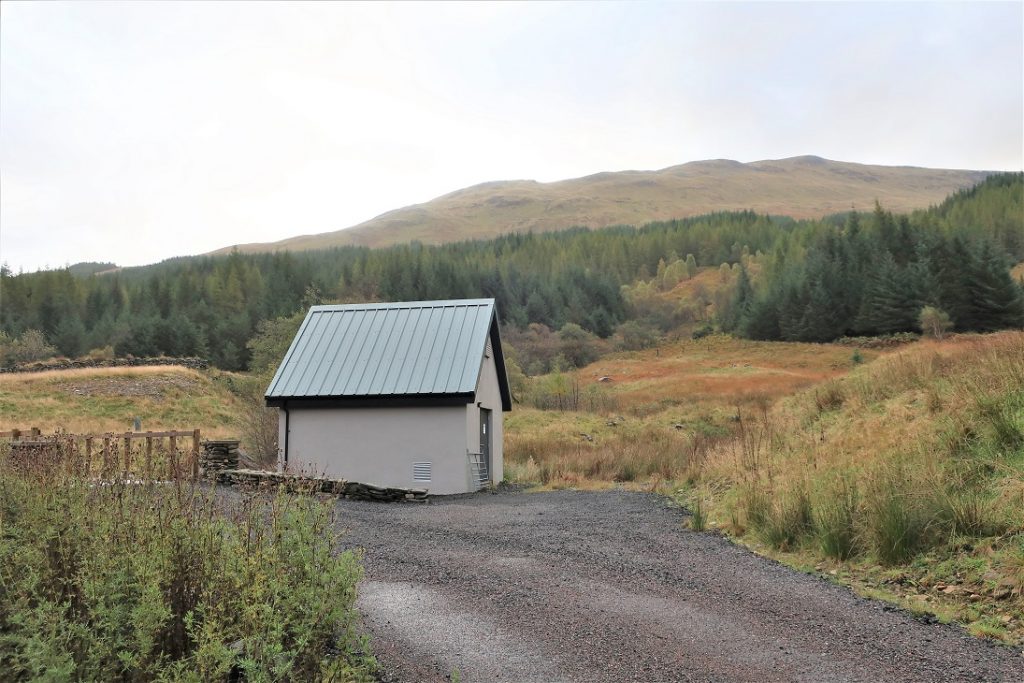
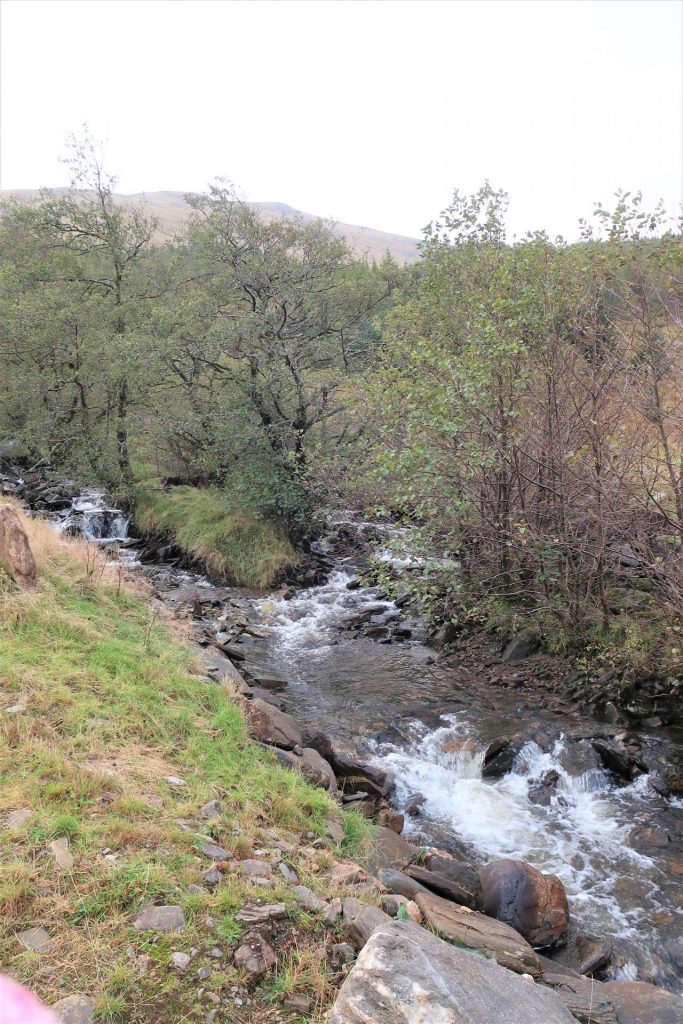
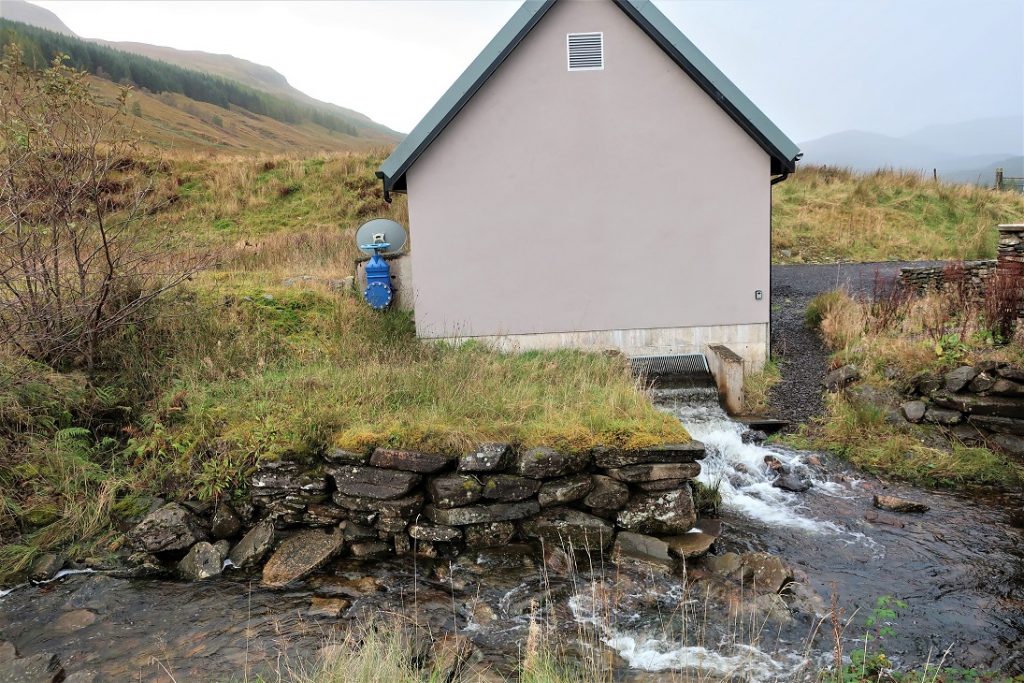
The rain is never far away and as soon as I’ve taken these shots it buckets down again.
Organising a beekeeping convention.
Have you just agreed to organise a beekeeping conference but you’re not quite sure where to start? This happened to me six years ago but it all worked out well in the end and I’m going to tell you how we pulled it off.
The first things to know are how many delegates you want to attract, and the theme of the conference. Are you going to focus on pollination, bee health, or another topical issue? If I were organising it today, I would consider covid and cater also for people who want to participate via Zoom.
As soon as you have established the theme, book good speakers. How do you know they are good? Attend a few conferences yourself and listen to presentations to get a feel for a good speaker. Preferably find at least one speaker with beekeeping experience. There are some top scientists on the circuit who have the ability to relate well to beekeepers and tailor talks to our needs sharing scientific material in an easy-to-understand way. Find out who they are and book them.
You’ll need at least a year to get organised, but longer is better. We set up a short-life working party of 3 friends with different skills who would work well together. We met every month till the last 2 months before our conference when we met weekly. We aimed for 200 delegates (189 attended) so the first step was booking a venue near us to cater for this number and provide a hot buffet meal on behalf of the Scottish Beekeepers’ Association under whose banner we worked.
Our theme for the North East of Scotland venue was a tartan weekend with prizes for the best dressed man or woman, and a Scottish ceilidh after the Saturday conference. We had a skep making demonstration on Friday evening, presentations on Saturday and a trip to a whisky distillery on Sunday followed by a visit in the afternoon to bees at the heather up Ben Rinnes.
For this to work we involved a lot of other volunteers and made their roles clear, and what we needed them to do. Good communication is key and I took this on to coordinate the process. I ended up doing something related to the conference nearly every day of the year leading up to it and there was a tremendous amount of work involved.
These are the teams that made up our large volunteer group:
Ticketing: one person took this on, but an online system such as Eventbrite would be the way to go today. We had an early bird booking scheme where ticket prices were cheaper if booked before end of June. The conference was in October. A list and contact details of local accommodation was available on booking.
Registration and Welcome Team: This team was key and making delegates feel welcome is very important. It was also essential to have plenty of space for this desk and to move delegates along and direct them to the refreshments rather than catch up with friends in this area which got crowded. This team handed out goody bags containing notebook, pencil, and some samples of shortbread and miniature whiskies. We used tartan plastic bags which were not quite large enough to hold leaflets etc given out by traders. Today, with respect to the environment, I would use paper carrier bags.
Raffle: one person led this team and called out the winners on the day. The team included ticket sellers, prize collectors and coordinators. Raising money by raffling good quality goods is a successful source of income. Local companies and beekeeping suppliers were invited to donate goods and get some advertising in return.
Trade Stands: We attracted 12 companies to send representatives and goods to the venue and one volunteer coordinated this part. It involved visiting the venue a couple of times before the event to measure up the floor space and mark out the appropriate stands. The trade stand coordinator communicated with holders and was there to meet and greet them on arrival. This is a big part of a convention and traders coming from as far away as South of Scotland and England need to be well looked after and have good success to make it worth their while coming.
Speakers/Trouble Shooting: A volunteer was there to meet and greet speakers and make sure that they had all they needed. Always a good plan to ensure that the venue can provide lapel and roving microphones, and laser pointers in green for people who are colour blind. We had a problem with one of our speakers who insisted on a cane pointer which we didn’t have on the premises. I ran out to my car to get my horse -riding crop/whip. I haven’t seen it since so must have left it at the venue. It’s been a mystery to me till today when writing this and remembering the event.
First Aider & Team: Health and safety risk assessments are usually part of the venue hire but an important consideration as is having first aid on site.
Car Park Attendants & Team: Car park attendants were responsible for putting up signs directing delegates to the venue, then meeting and greeting them in the car park and helping them find a space.
Book Selling: Someone took on organising book signing. If speakers have published books, then setting up a book signing space for them is good at a conference.
Advertising: I advertised in several beekeeping magazines and took flyers to conferences. I wrote an article on Scotland’s heather moors for an American magazine which attracted a couple of beekeepers over from NY.
Introductions on Stage: 3 people were recruited to introduce speakers, be responsible for time keeping, questions at the end of presentations, helping the programme stay on track, thanking presenters and giving them gifts.
We involved 3 local beekeeping associations who, collectively, generously donated a large amount of money which paid for delegate goody bags and additional events. They also provided many of the volunteers.
Feedback: 104 (55%) delegates returned forms and there was a 50/50 split on whether future conferences should last one day or the whole weekend. It was successful and talked about for some time as being one of the best conferences. Many thank you letters were received from speakers, stallholders and delegates. We received good suggestions for some changes and, together with our own experiences, we were able to construct a basic template for others to follow in future.
Conclusion.
The key ingredients for success we discovered are; enthusiasm, teamwork, networking, and good communications. I hope this account will be useful to you and it will be interesting to hear how others have organised conferences if you have experiences to share.
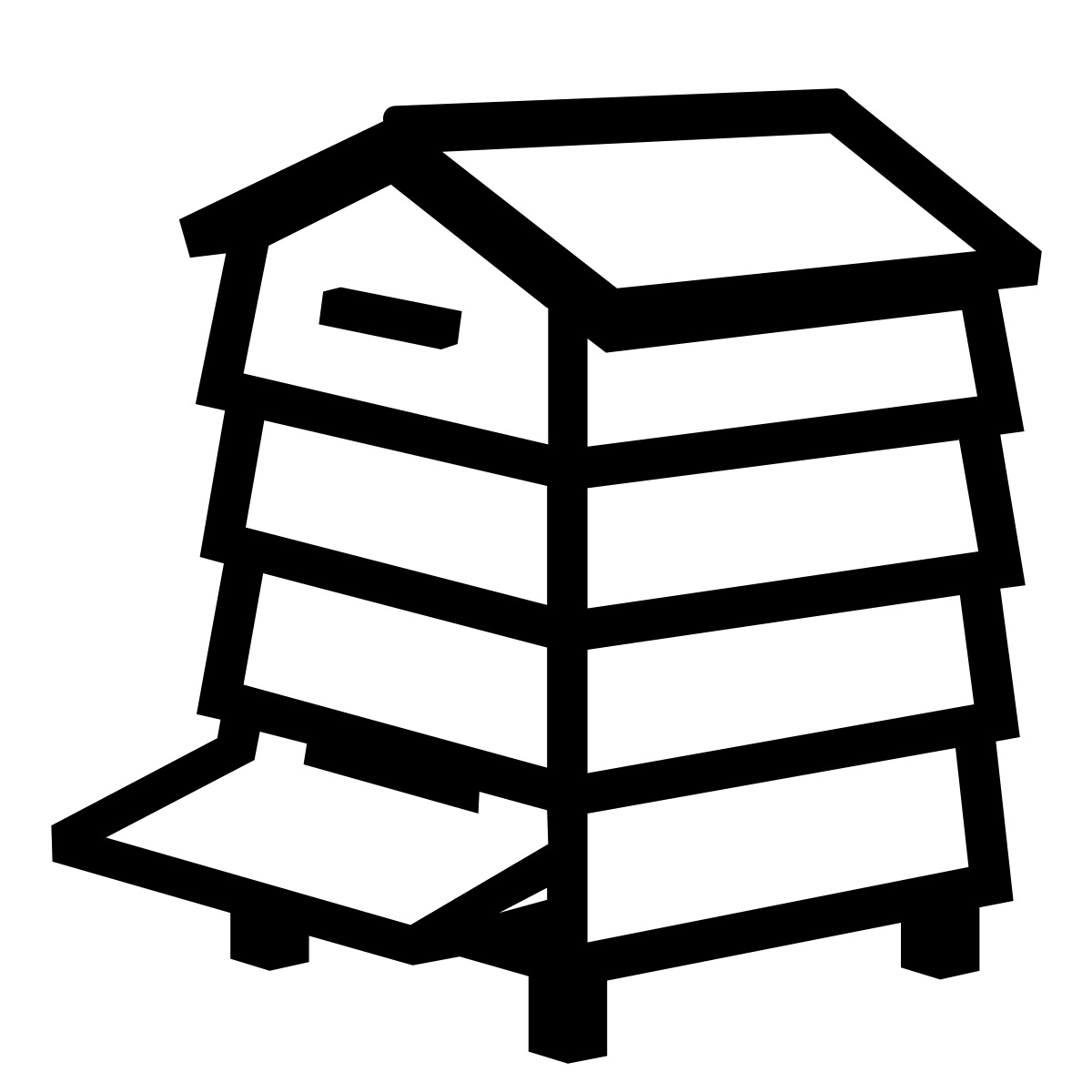
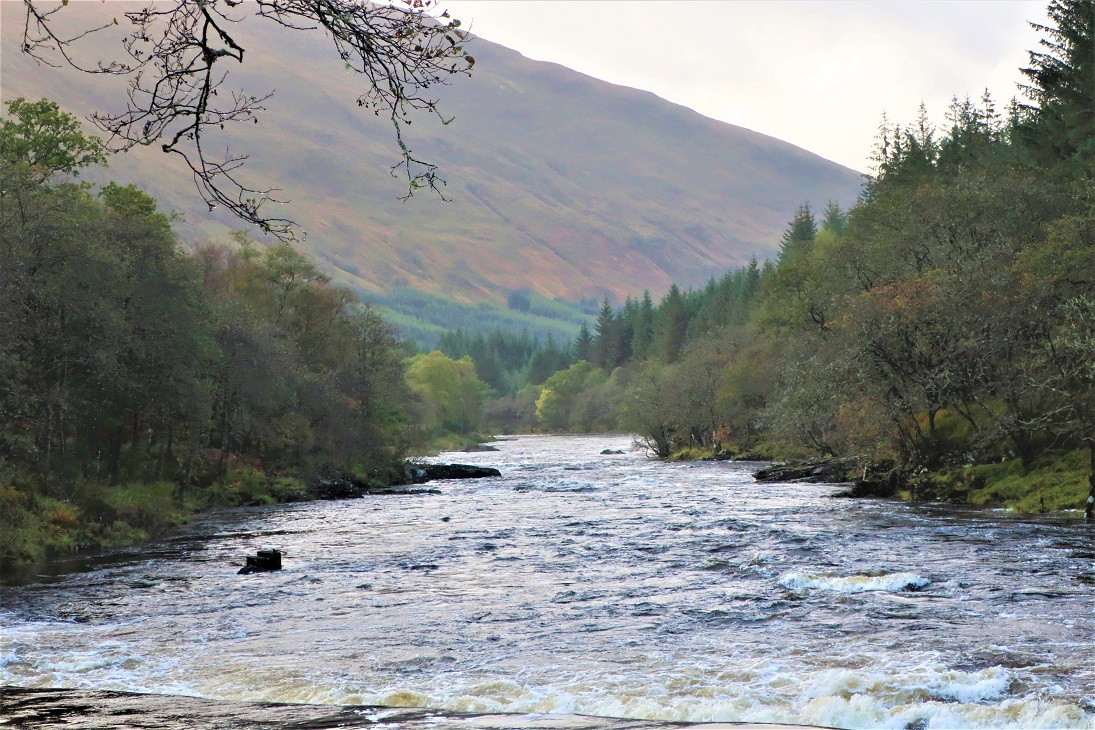
Thanks for posting this Ann, I thought I recognized Tristan and yes…. I met him on one of the the brilliant bee course’s on Colonsay taught by Andrew Abrahams! I remember Tristan telling me (over a pint at the Colonsay Hotel) he was Varroa free and me being very envious!
Hello Gordon, nice to hear from you. It’s a small world. Tristan may be varroa-free at the moment but he knows that the present situation is tenuous. Only recently, some foolish/selfish beekeeper (against good advice) brought varroa-laden bees up from Wales to an area close to Glen Orchy.
Thank you, Ann, for writing the report on beekeeping in Glen Orchy by your friend Tristan. What a beautiful place to call home, and what a good use for a sheep fank: a well sheltered apiary site.
Thanks, too, for describing the immense body of work that was done in preparation for the lovely beekeepers’ meeting in Forres several years ago. I liked how the Saturday meeting with daytime talks and evening ceilidh was followed on Sunday by field trips up into the hills to the apiary with the black bees and then down to the valley town with the distillery. This meeting provided such beautiful memories of northeast Scotland and of Scottish bees and beekeeping.
Thanks, Tom. I hope that others can use the conference template as it did work well. Only because of the effective teamwork though.